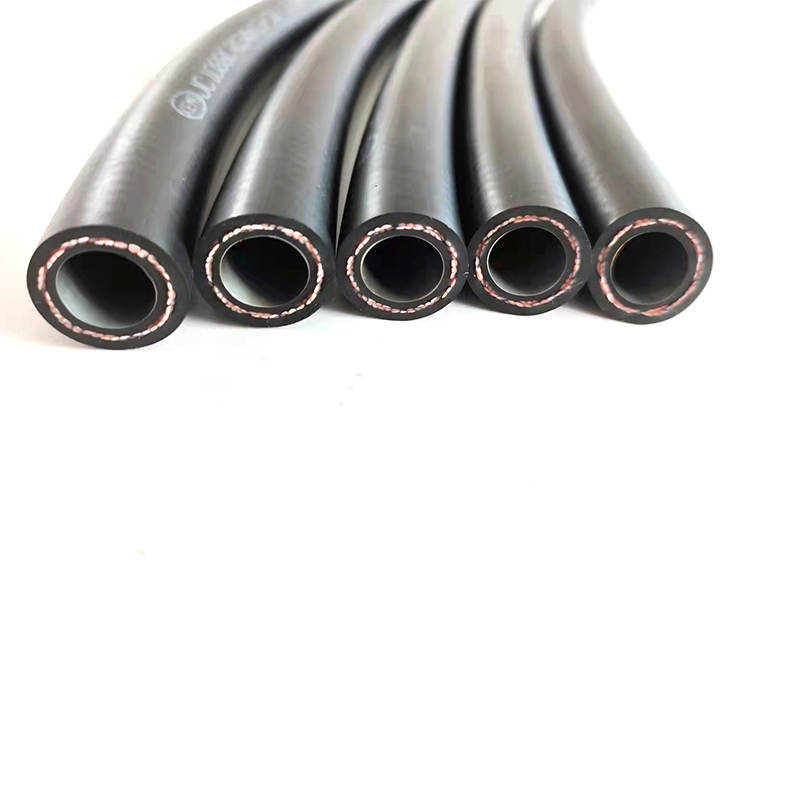e10 resistant fuel hose
ಡಿಸೆ . 23, 2024 22:06 Back to list
e10 resistant fuel hose
Understanding E10 Resistant Fuel Hose The Future of Fuel Delivery Systems
In recent years, the automotive industry has undergone a significant transformation, driven by the urgent need for sustainability and the adoption of alternative fuels. One notable development in this shift is the increasing use of E10 fuel, which contains 10% ethanol and 90% gasoline. While this blend offers a more eco-friendly fuel option, it presents unique challenges, especially concerning fuel delivery systems. One critical component that has emerged as essential in this context is the E10 resistant fuel hose.
What is E10 Fuel?
E10 fuel, or Ethanol Blend 10, is a gasoline mixture that includes up to 10% ethanol. Ethanol is a renewable fuel derived from plant materials, making it a more sustainable alternative to traditional gasoline. Its use not only helps reduce greenhouse gas emissions but also promotes energy independence by utilizing domestic resources. However, the introduction of ethanol into fuel presents compatibility issues with various materials used in fuel systems, particularly those that are not designed to withstand the properties of alcohol.
Why is E10 Resistant Fuel Hose Important?
The challenge with E10 fuel lies in its chemical composition. Ethanol can be corrosive to certain materials, causing degradation in components that were not engineered for this environment. Standard fuel hoses made from traditional materials, such as rubber, may swell, crack, or become brittle when exposed to ethanol-rich fuels. This deterioration can lead to fuel leaks, reduced performance, and even catastrophic failure of fuel delivery systems.
E10 resistant fuel hoses are specifically designed to overcome these challenges. Made from advanced materials like fluoropolymer and specially treated rubber, these hoses can withstand the corrosive effects of ethanol, ensuring a longer lifespan and reliable performance. The use of E10 resistant hoses is vital for vehicles that use E10 fuel, ensuring that the fuel delivery system operates efficiently and safely over time.
Features of E10 Resistant Fuel Hoses
e10 resistant fuel hose

1. Material Composition E10 resistant fuel hoses utilize materials that are engineered to resist the corrosive effects of ethanol. These materials prevent swelling and degradation, ensuring the integrity of the hose remains intact for extended periods.
2. Temperature Resistance In addition to ethanol resistance, these hoses are designed to withstand a wide range of temperatures. This feature is crucial in various environments, ensuring that the hose does not fail due to heat exposure or extreme cold.
3. Flexibility and Durability E10 resistant fuel hoses maintain flexibility, which is essential for easy installation and routing within the vehicle. They are also constructed to resist abrasion and mechanical wear, further extending their functionality.
4. Compliance and Safety Standards These hoses meet or exceed regulatory standards for fuel delivery systems, providing peace of mind for manufacturers and consumers alike. Compliance with safety standards ensures that the hoses can handle the pressures and conditions found within fuel systems.
The Environmental Impact
The push towards E10 and other ethanol-blended fuels is part of a broader effort to reduce dependence on fossil fuels and lower carbon emissions. By integrating E10 resistant fuel hoses into vehicles’ fuel systems, manufacturers can ensure that these vehicles operate as intended while being environmentally responsible. The hoses contribute to the durability and efficiency of the fuel system, reducing the likelihood of spills and leaks that can harm the environment.
Conclusion
As the automotive industry continues to pivot towards renewable fuels, the importance of E10 resistant fuel hoses cannot be overstated. These specialized hoses offer a practical solution to the challenges posed by ethanol-blended fuels, ensuring that vehicles can operate safely and efficiently. By utilizing materials that withstand the corrosive nature of E10 fuel, manufacturers are not only protecting their vehicles but also contributing to a more sustainable future. With the right components in place, the transition to alternative fuels can progress smoothly, paving the way for a cleaner, greener automotive ecosystem. As consumers and manufacturers alike strive for a more sustainable approach, E10 resistant fuel hoses stand out as a key technology in the evolution of fuel delivery systems.
Latest news
-
Durable Automotive Fuel Line: Car, Diesel & E85 Hoses
NewsAug.27,2025
-
Automotive Fuel Line & Hose Solutions | E85 & Diesel Ready
NewsAug.26,2025
-
Reliable Automotive Fuel Line | E85 & Diesel Compatible
NewsAug.25,2025
-
Durable Car Heater Hose | Quality Automotive Preheater Pipes
NewsAug.24,2025
-
Durable Air Brake Hose & Air Lines for Trucks | Safety Ensured
NewsAug.23,2025
-
Air Conditioning Charging Hose: Durable AC Recharge Kits
NewsAug.22,2025
